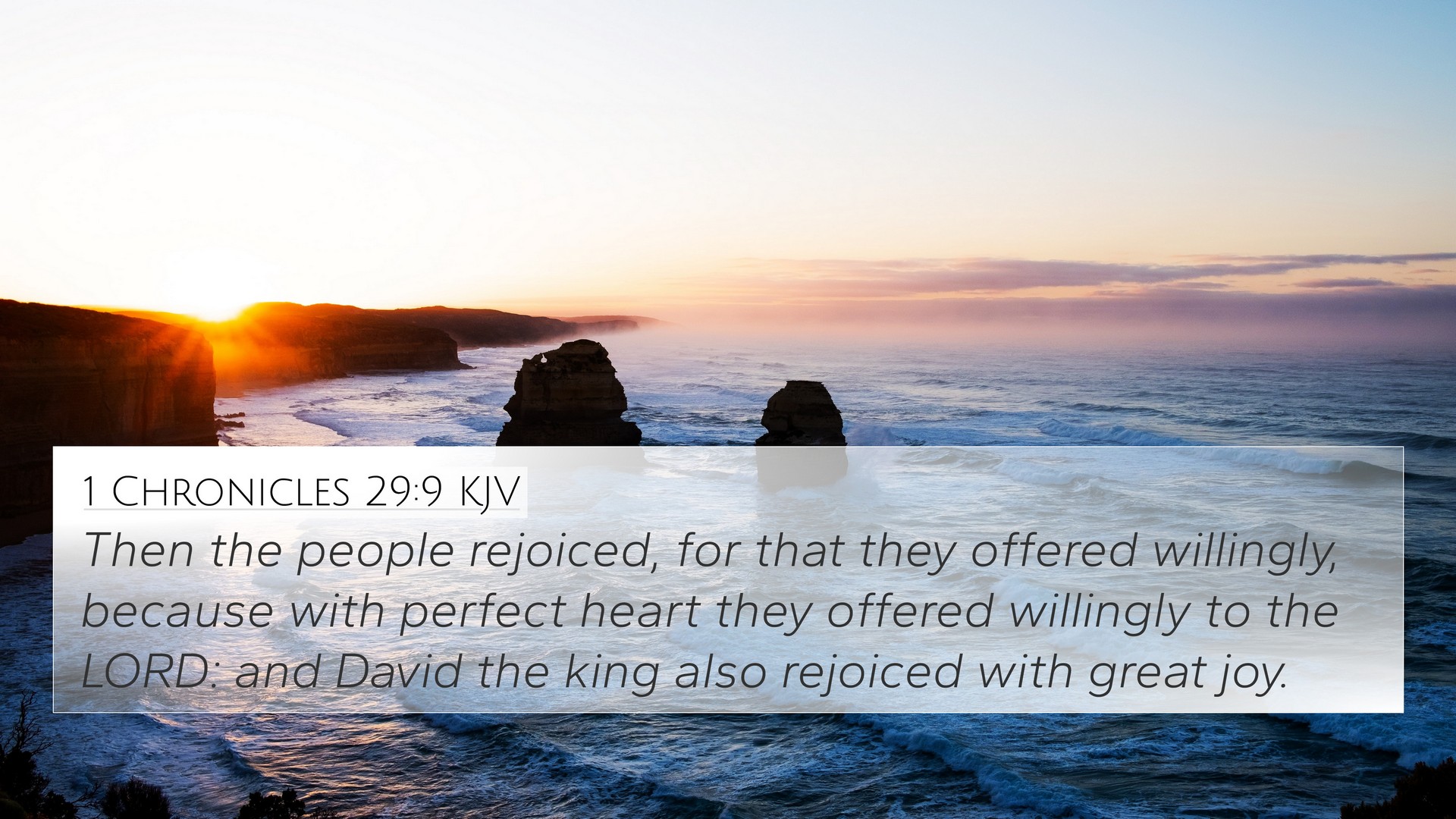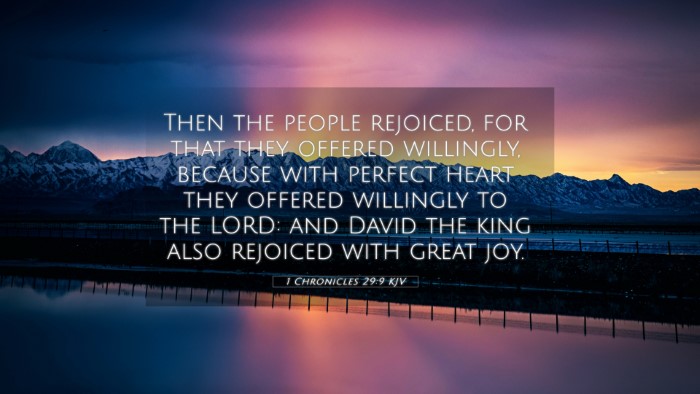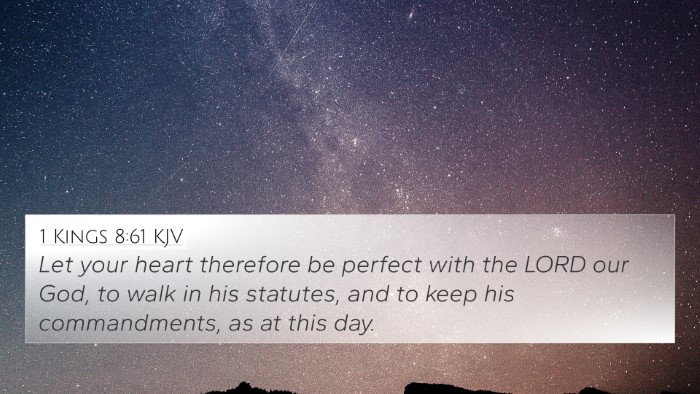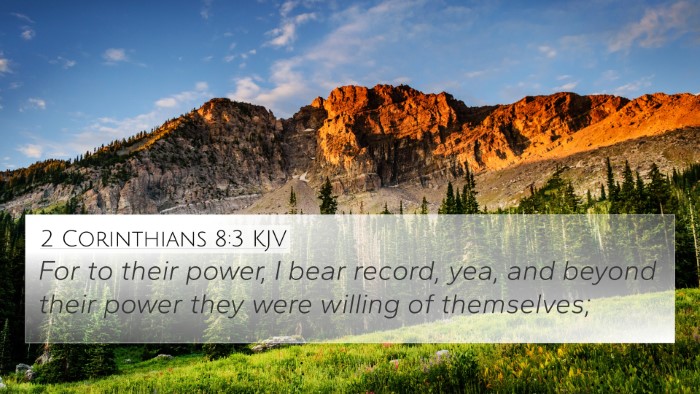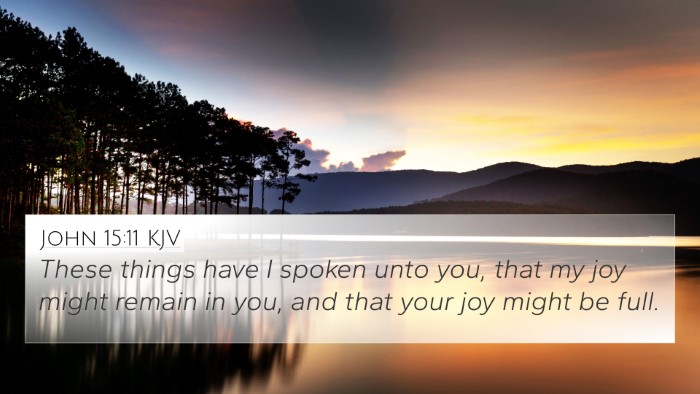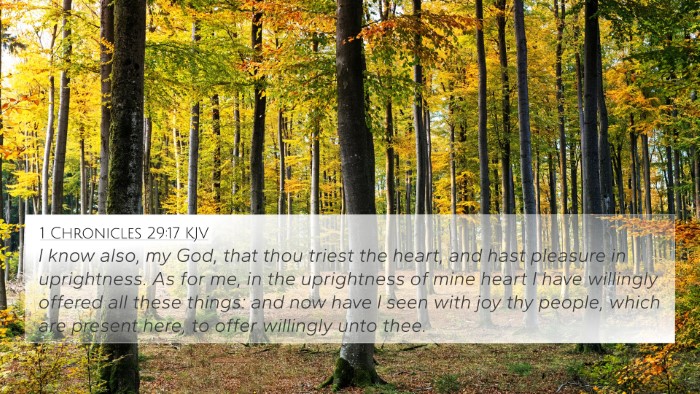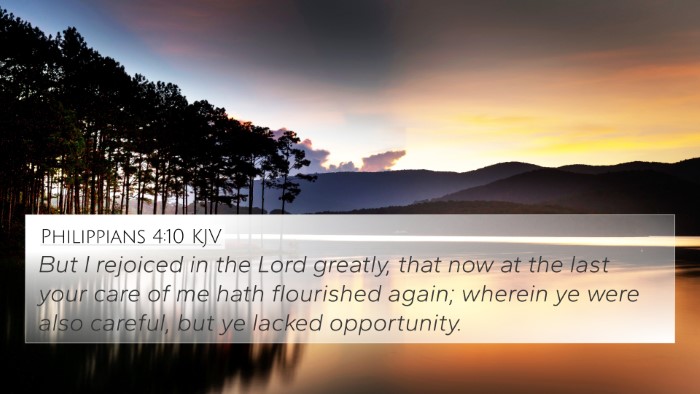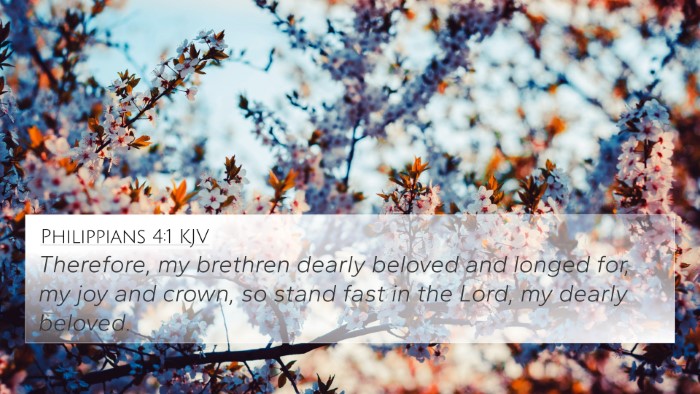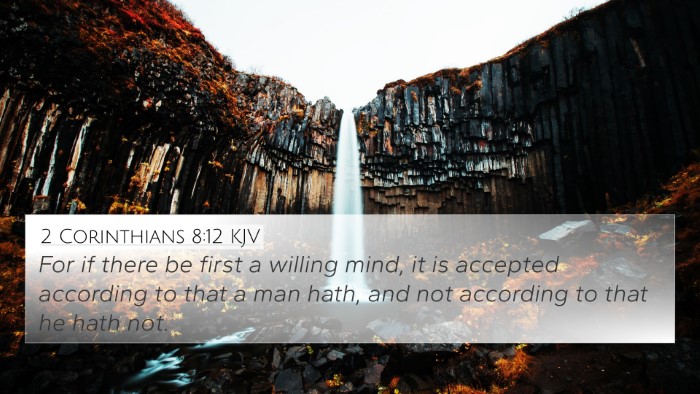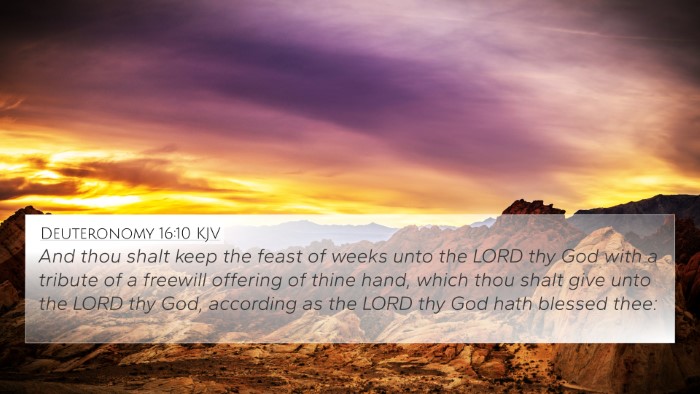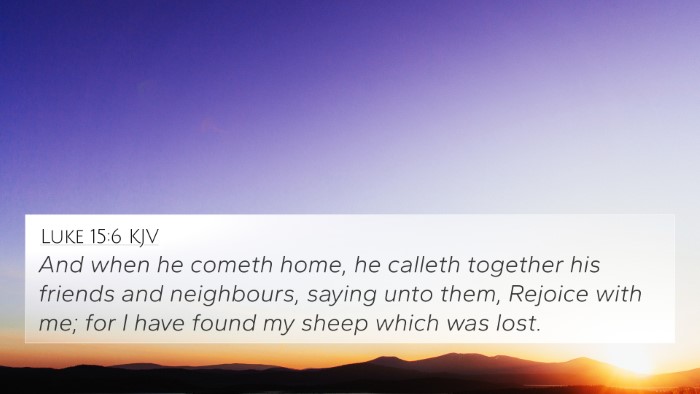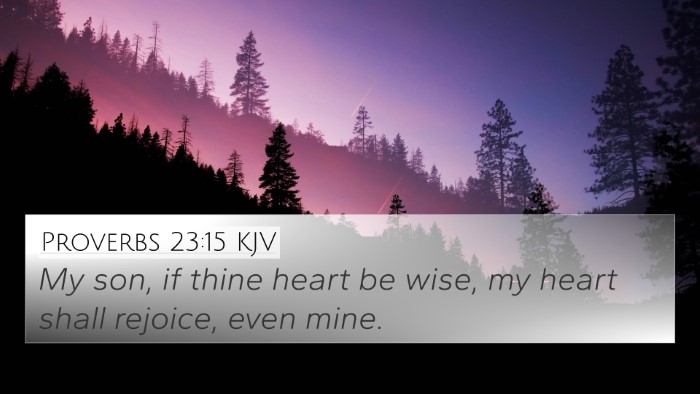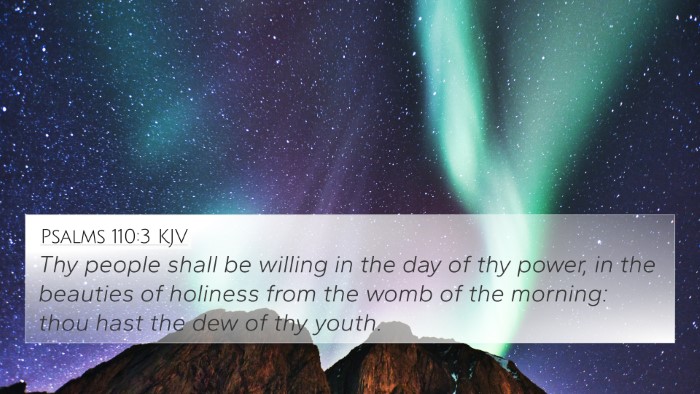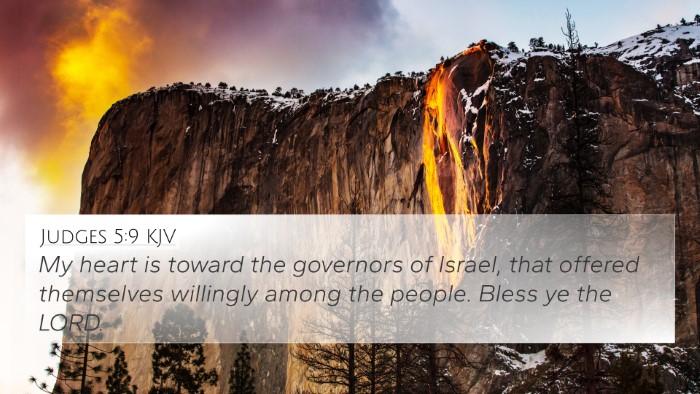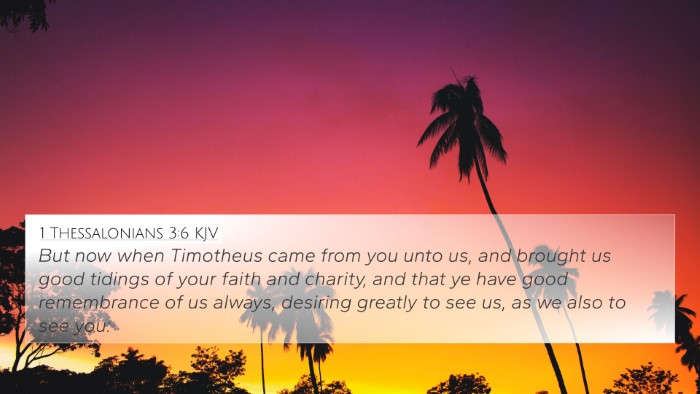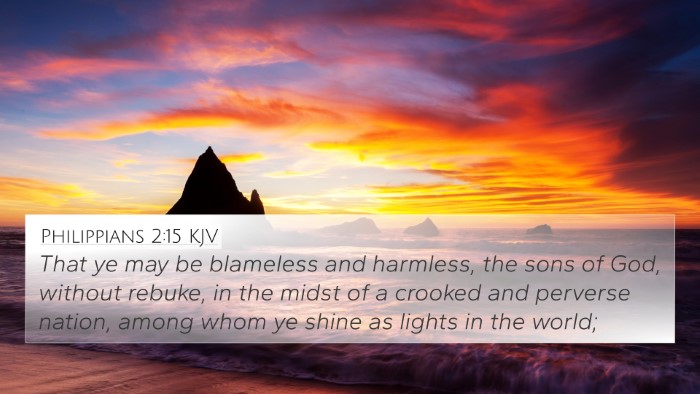Understanding 1 Chronicles 29:9
1 Chronicles 29:9 states: "Then the people rejoiced, for they had offered willingly, because with a whole heart they had offered freely to the LORD. And David the king also rejoiced greatly." This verse encapsulates the themes of joy, willingness, and the communal response to God's work, offering deep insight into the nature of worship and giving in the context of ancient Israel.
Verse Meaning and Insights
This verse is situated within a larger narrative where King David prepares the materials for the construction of the temple in Jerusalem. The following points summarize the combined insights from public domain commentaries by Matthew Henry, Albert Barnes, and Adam Clarke:
- Joy in Giving: The verse emphasizes the joy of the people as they contribute willingly to the work of the LORD. Their willingness and joyful giving reflect an important aspect of their faith (Henry).
- Wholehearted Devotion: The phrase "with a whole heart" highlights the sincerity with which the people approached their offerings. This indicates that true worship involves complete dedication (Barnes).
- Community Participation: The collective response of the people signifies unity in purpose and action, depicting a healthy communal life centered on God (Clarke).
- The Role of Leadership: David's joy at the people's offerings demonstrates the impact of leadership on communal worship and the fostering of a culture of generosity (Henry).
- God's Provision: The act of willingly giving showcases a trust in God’s provision, where the community recognizes that all they possess ultimately belongs to Him (Barnes).
- Spiritual Connection: The rejoicing serves as a reminder of the deep spiritual connection between the people and their God, enriching their worship experience (Clarke).
- Preparation for Divine Purpose: This moment of joyous giving sets the stage not only for the building of a physical temple but signifies preparing their hearts for God's dwelling among them (Henry).
Bible Cross-References
1 Chronicles 29:9 connects with several other Bible verses that enhance its meaning and context. Here are some notable cross-references:
- Exodus 35:29: "The people of Israel brought a freewill offering to the LORD, every man and woman whose heart made them willing to bring anything for the work that the LORD had commanded by Moses." This verse reinforces the idea of voluntary giving in worship.
- 2 Corinthians 9:7: "Each one must give as he has decided in his heart, not reluctantly or under compulsion, for God loves a cheerful giver." This New Testament parallel emphasizes the heart attitude in giving.
- Psalm 54:6: "With a freewill offering, I will sacrifice to you; I will give thanks to your name, O LORD, for it is good." The psalmist reflects the theme of joyful offerings to God.
- Acts 4:32: "Now the full number of those who believed were of one heart and soul, and no one said that any of the things that belonged to him was his own, but they had everything in common." Here, the unity and generosity of the early church echoes the sentiments found in 1 Chronicles 29:9.
- Deuteronomy 16:17: "Every man shall give as he is able, according to the blessing of the LORD your God that he has given you." This verse reiterates the principle of giving according to one’s blessings.
- Philippians 4:15-18: "And you Philippians yourselves know that in the beginning of the gospel, when I left Macedonia, no church entered into partnership with me in giving and receiving, except you only." The spirit of partnership and mutual support in ministry connects to the communal giving seen in Chronicles.
- Malachi 3:10: "Bring the full tithe into the storehouse, that there may be food in my house. And thereby put me to the test, says the LORD of hosts." This injunction encourages God’s people to give generously and faithfully.
Connections Between Bible Verses
The thematic connections between 1 Chronicles 29:9 and other verses are profound, encouraging further exploration and study. Here are some thematic insights:
- The Meaning of Generosity: Scriptures throughout the Bible reinforce the idea that giving should be voluntary and joyful.
- Worship as a Community Act: The behavior of the people in Chronicles reflects a Biblical tradition of communal worship and contribution, seen also in Acts and other historical contexts.
- Heart vs. Ritual: In many of the referenced verses, true worship is highlighted as being more substantial than mere external actions; it should come from the heart.
- God's Desire for His People: The collective joy in giving signifies God's sovereign ability to invite His people into His work, further illustrating His desire for a relationship with them.
Tools for Bible Cross-Referencing
For those interested in exploring these connections more deeply, various tools and methods can enhance your study of the Bible:
- Bible Concordance: A tool to help locate verses that share similar themes or keywords.
- Bible Cross-Reference Guide: Helps to find related passages that may not be immediately apparent.
- Cross-Reference Bible Study: Engaging in practices that encourage exploring multiple scriptures together to see how they relate thematically or contextually.
- Comprehensive Bible Cross-Reference Materials: Resources like topical Bibles or study Bibles that include cross-references throughout the texts.
- Chain References: Following a sequence of verses based on themes or topics to see how they interconnect.
Conclusion
1 Chronicles 29:9 presents a powerful insight into the nature of giving and the communal spirit involved in worship. Through joyous and willing offerings, the people of Israel exemplify the heartfelt devotion that God desires from His followers—an ideal that reverberates through the teachings of both the Old and New Testaments. Understanding this verse not only enriches our perspective on worship and giving but also encourages us to forge deeper connections between various scriptures, further illuminating the unified message of the Bible.
